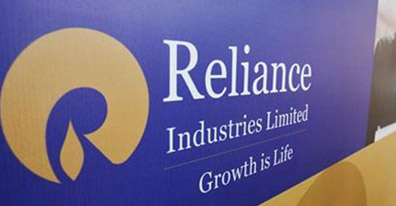Mumbai, May 11: Reliance Industries (RIL) and its partners BP and NIKO, the contractor group of the Krishna-Godavari basin (KG-D6) block, have slapped an arbitration notice on the government. They have sought the implementation of the domestic natural gas pricing guideline 2014 that was notified on January 10, 2014 – after the government approved the Rangarajan formula doubling gas prices to $8.4 per unit from April 1.
Despite RIL's insistence to put in place the gas price hike, the petroleum ministry indicated to the contractor that gas prices would only be announced for the second quarter. RIL said this has resulted in a loss to the contractor group and the government of Rs 300 crore a month.
While the ministry was to notify the new gas price for April-June quarter, the Election Commission on March 24 advised deferment of announcement till poll codes are lifted.
 RIL's move may make things difficult for next government as they will be expected to soon tackle the issue of gas price hike. The matter may get more complex if the Lok Sabha elections throw up a fractured verdict.
RIL's move may make things difficult for next government as they will be expected to soon tackle the issue of gas price hike. The matter may get more complex if the Lok Sabha elections throw up a fractured verdict.
The ministry's decision has forced RIL to keep selling gas at $4.2/mmbtu after April 1. RIL believes this is in contravention of the PSC and detrimental to the economic interests of the contractor group and the government.
Without any clarity, the companies said they are unable to sanction planned investments of close to $4 billion this year. In addition, this will also delay the ability of the companies to appraise and develop other significant discoveries made last year. Overall, they were planning to invest $8-10 billion in the next few years to significantly increase production from the KG-D6 block.
This domestic production is essential for not only meeting India's energy needs but also helping conserve foreign exchange which is required for imports of natural gas into India.
The RIL-led companies have also promised to work with the government to achieve a prompt and efficient resolution of the ongoing dispute.
Debashish Mishra of Deloitte told dna, "Any new gas production in the country is possible only at certain point price and $4.2 is not that price. Prices will have to be increased to promote exploration in country and price of $8.4 is certainly better than importing gas at $16-$18."
In a note to media, RIL has explained what forced RIL to file a notice of arbitration on the government. They believe that they were left with no other option.
"Having made a major discovery in 2013, we were getting ready to start investing in the development of discovered resources. We were upbeat over the opportunity to invest over $8-10 billion in development of discovered resources over the next 3-4 years. These investments could have significantly increased our production by 2019. This would also help the country avoid LNG imports of more than $75 billion," claimed RIL.






Comments
Add new comment